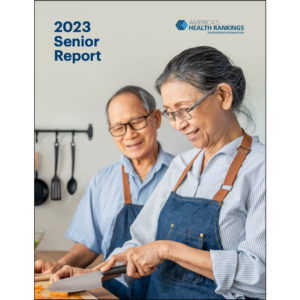New Study Suggests Weight Loss in Older Adults May Increase Risk of Death
A new study suggests that weight loss in healthy older adults may correlate with an increase in mortality, particularly among men. The study examined 16,523 healthy subjects and found that in the male subjects, the loss of 5% to 10% of their body weight was associated with a 33% increase in mortality. The loss of more than 10% body weight was associated with a 289% increase in mortality.

Dr. Steven Norris, senior health expert and medical director at Transitions Care
In women, the loss of 5% to 10% of body weight was associated with a 26% increase in mortality, while the loss of more than 10% body weight was linked to a 114% increase in mortality.
The study’s conclusions suggest that weight loss in healthy older adults is associated with an increase in both all-cause and cause-specific mortality. This includes an increased risk of cancer, cardiovascular disease, and other conditions. The findings suggest that it’s important for physicians to carefully monitor weight loss in older adults, and attentive weight monitoring is also essential in senior care settings.
Physician Weighs In on the Study
Dr. Steven Norris is senior health expert and medical director at Transitions Care. Prior to joining the Transitions team, he held a variety of positions at OSF healthcare, including adult hospitalist, family medicine physician, and skilled nursing facility hospitalist.
Dr. Norris explains that he doesn’t find the study results surprising. “Weight loss is a risk for seniors, because a healthy well balanced nutritious diet is vital to help maintain a robust immunological status,” he says. “Maintaining a good albumin and prealbumin level, and maintaining a good hemoglobin and oxygen carrying capacity is also vital for getting enough nutrients to maintain and repair damaged muscle, tissues, and organs. Therefore, initial and or unintentional weight loss potentially decreases the body’s ability to maintain these very important functions of nutrition as we age.”
Lessons on Weight Management of Senior Care Residents
Weight loss can be influenced by various lifestyle factors experienced by residents in senior care settings. Isolation, in which residents refrain from leaving their rooms during meal time, can potentially lead to weight loss, as well as changes in sleeping patterns, reduced oral intake, and deliberate dietary restrictions.
Norris notes that it’s important for residents to practice weight management with a focus on nutrition. “There is no need to intentionally try to lose weight if you are at an ideal body weight,” he explains. Residents who are overweight and trying to lose weight should maintain a well-balanced, nutritious diet full of essential vitamins, minerals, and nutrients.
Based on the study’s outcomes, Norris recommends that senior care facilities monitor residents’ weights weekly to monthly, based on individual risk for weight loss or recent evidence of weight loss. He recommends that if a resident is appearing to lose weight, their intake should be monitored and reasons for weight loss should be identified. “Have early dietary or dietician education and intervention,” he says. “Make sure the facility is providing options at meal times for a variety of foods.”
Maintaining a healthy weight in senior care residents plays a key role in sustaining their overall health and wellbeing. “The elderly, even though they are ‘healthy,’ are in a constant physiological decline as they age as part of the natural aging process,” Norris explains. “As a result of this, there is a relative reserve when it comes to all processes such as warding off infections and/or diseases. Therefore, maintaining your weight and nutrition is imperative to maintaining the physiological balance necessary to maintain our health and general well-being.”

Paige Cerulli is a contributing writer to i Advance Senior Care.
Related Articles
Topics: Facility management , Featured Articles , Nutrition , Risk Management











